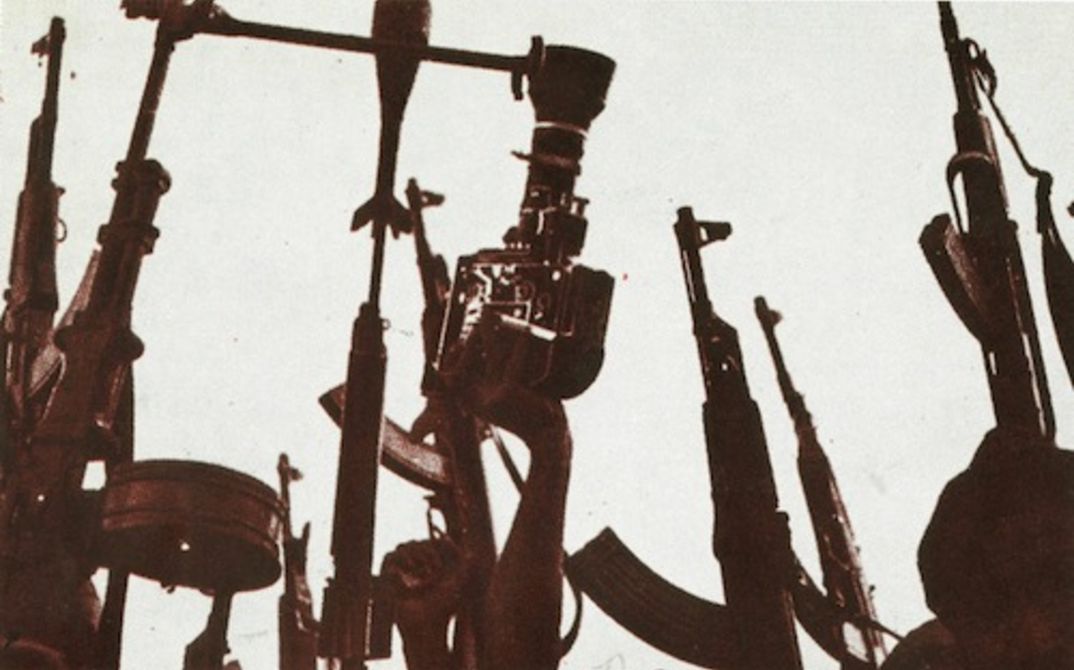Is it possible to archive a revolution that never ended? To freeze a moment of a continuous struggle? How can an archive leave its comfort zone of the past, its unretainable reality, and become a part of the daily discourse, contributing to the discussion around that struggle it represents? When and through what process does an archive rid itself of nostalgia, to become an image, a frame, a sound? The struggle for the liberation of Palestine, or the Palestinian revolution in the 1970s, attracted many Palestinian, Arab, and international filmmakers. That and the multiplicity of political factions and their ideologies produced an impressive visual body of work. Film in particular was a popular tool to tell the story of the revolution. These films were widely distributed around the world. Following the 1982 Israeli invasion of Lebanon and the dismantlement of the revolution, they went out of circulation and had been labeled as the lost archive.
Today, as many initiatives and attempts are made to (re)create an archive of these films, Subversive Film asks whether its practice should be regarded as a statement, insisting that the subversive and political quality of the material is seen, and on the necessity to treat the films as contemporary elements rather than archiving them.
Subversive Film, formed in 2011, is a cinema research and production collective that aims to cast new light upon historic works related to Palestine and the region; to engender support for film preservation; and to investigate archival practices and effects. Other projects developed by Subversive Film to explore this cine-historic field include the digital reissuing of previously-overlooked films, the curating of rare film screening cycles, and the subtitling of rediscovered films.
All panels, talks, and presentations in English language.
